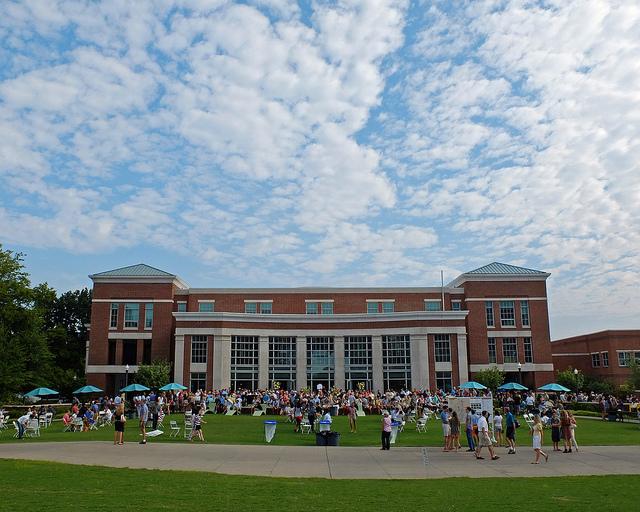
Administrators at Vanderbilt University are urging graduate students not to form a union. In a recent email, the school’s provost and dean of grad students wrote that if they organize, the relationship between the university and its students would be unnecessarily disrupted.
At the heart of the issue is whether graduate students who also work for the university should be seen as employees or, as Vanderbilt argues, simply as students working toward future careers.
“Our students are not at Vanderbilt for the primary purpose of holding jobs or performing services on behalf of the University,” Susan Wente and Mark Wallace wrote in their email. “Rather, they are here for the true purpose of gaining a world-class education, including experiential opportunities for the practice of instruction and research.”
The email also contends that a union would turn the relationship between teachers and students into one of “supervisor-supervisee” that would hurt the educational experience.
Jesse Montgomery, a member of the union’s organizing committee, disagrees with that argument. He’s in his third year of an English PhD program and teaches a literature course every semester.
“I don’t think that considering yourself an employee fundamentally changes the way that you interact with your advisors or people you learn from,” he says.
In fact, he says, he welcomes more structure to the relationship between grad students and the administration, as well as legal recourse if anything goes wrong.
“I think many of us agree that being a graduate student at Vanderbilt is pretty wonderful in many respects,” he says. “But we also recognize that what we do enjoy is basically given to us by the university out of their goodwill or their sense of responsibility, and we don’t have a say in that at all. … We have no bargaining power.”
This conversation is happening now because the National Labor Relations Board ruled last August that graduate students at private universities
could collectively bargain — a reversal of policy. (Previously, students at public universities were allowed to unionize if their state’s law allowed it.)
But in a statement sent to WPLN, Vanderbilt says it believes that ruling will be overturned.
Meanwhile, there’s a concurrent unionizing effort at the university
among non-tenured faculty, like lecturers and adjunct professors. They’re further along in the process, having already requested a formal vote.


